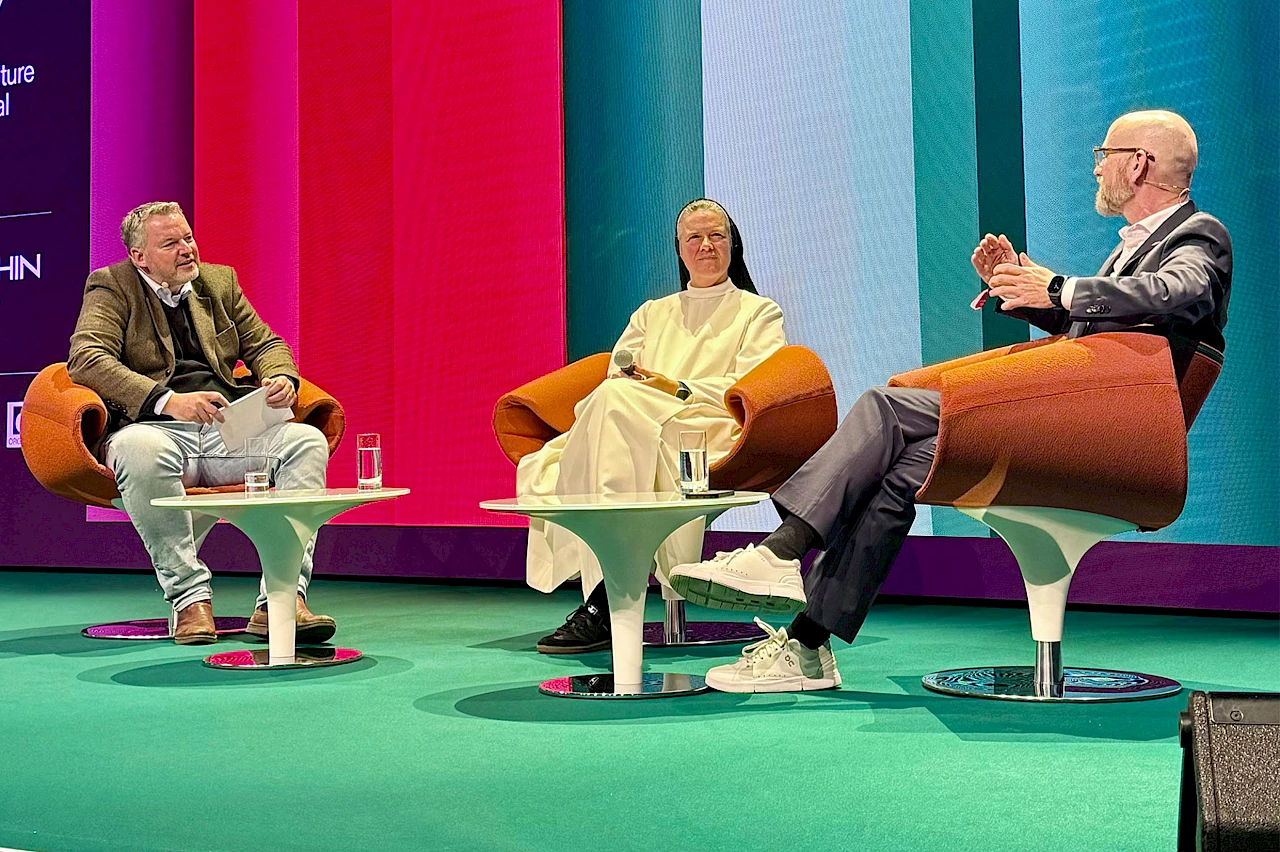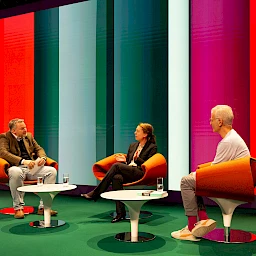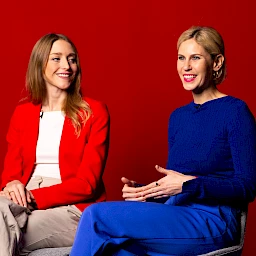Sister Ursula Hertewich and Dr Peter Tauber, two individuals whose biographical turning points exemplify the topic of transformation, met at the Work Culture Festival 2024. Moderated by Wolfram Sauer, the conversation focused on the question of how personal disruptions, professional reorientation and questions of values relate to the challenges of a changing world of work and what inspiration can be derived from this for organisations.
Careers with purpose: Work as an expression of identity
Both interviewees look back on careers that were initially characterised by clear professional goals. While Ursula Hertewich comes from a family of pharmacists, studied pharmacy, obtained her doctorate and initially worked in research and teaching, Peter Tauber went through a political career to become Secretary General of the CDU under Chancellor Angela Merkel. However, both decided to fundamentally change course in the midst of their careers: Hertewich joined a Catholic order, Tauber withdrew from active politics after a health crisis and has since been involved in new professional contexts.
These biographical reorientations reflect a growing need to understand work not only as functional, but also as meaningful. The question of what role one’s profession plays in one’s personal identity and whether it contributes to self-fulfilment is becoming increasingly important; employment biographies are less linear these days and this is precisely one of the strengths that give teams and organisations new impetus. They show that breaks in one’s CV aren’t a flaw, but can be an asset both individually and for companies. People who have intentionally left familiar paths often have a high degree of reflective ability, resilience and creative competence. They have learned to deal with uncertainty, change perspectives and actively shape change — skills that are increasingly in demand in a changing world of work.
Responsibility requires certain structures
A key topic of the discussion was the question of how responsibility in organisations can be shaped and under what conditions it remains sustainable in the long term. Peter Tauber openly described how the demands of his political office, the permanent pressure and the constant availability had led him into a health crisis. However, this forced retreat created space for a real reorientation.
His experiences made it clear that responsibility must not be understood as a heroic individual struggle, but must be embedded in structures that promote trust, open up scope for action and provide support. Work environments are needed that not only delegate tasks, but also provide resources, enable reflection and make it possible to show weakness without having to fear sanctions. Responsibility can only be exercised effectively if it is not viewed in isolation, but as a relationship between people, roles and institutional framework conditions. When understood in this way, leadership means not only control but also care, transparency and the active creation of a safe space for learning and development. Organisations that promote this culture not only strengthen the resilience of their employees, but also create the basis for sustainable effectiveness, even under challenging conditions. This creates an environment in which people can work effectively and healthily in the long term.
Rethinking leadership: Between trust and order
The discussion extended to key questions of leadership culture, in particular the question of how responsibility can be effectively shared and exercised. Peter Tauber took up the principle of mission tactics from the German armed forces — a model in which the focus is not on detailed control, but on the precise communication of an overarching goal. The path to implementation is left to the respective team, trusting that those involved will act appropriately, independently and competently. The decisive success factor here is not so much the extent of control, but rather the clarity of purpose and goal as well as the willingness to actually hand over responsibility.
Ursula Hertewich contrasted this with a model from monastic practice: hierarchies also exist there, but monasteries are increasingly seeking collective participation in the development of targets. Decision-making processes are based on dialogue, often involving a variety of perspectives within the community. In her community, it is now taken for granted that leadership has a moderating rather than a directive effect, a change that does not always run smoothly, but which unleashes new potential: for creativity, mutual learning and shared responsibility. Both perspectives make it clear that effective leadership today is less about formal authority and more about trust, orientation and shaping relationships. Anyone who delegates responsibility to employees must also be prepared to give them the necessary resources, freedom to make decisions and backing. One thing they have in common is that leadership is understood as a framework in which others can become effective. Trust is not assumed, but actively built up: through transparency, clear communication and the recognition of individual strengths within the team.
In conclusion, Hertewich and Tauber discussed social cohesion. Hertewich emphasised how important it is to see diversity not as a threat, but as a resource. In monastic communities, tolerating and appreciating diversity is a daily exercise and at the same time a key to mutual growth. Tauber added that public debates too often focused on differences. Only the deliberate search for the things that unite us enables constructive cooperation, both in communities and in companies. Especially in times of profound change, spaces are needed in which diversity is tolerated, dialogue enabled and joint learning promoted. Looking beyond system boundaries can help to develop new solutions for a humane, efficient and sustainable working environment.






